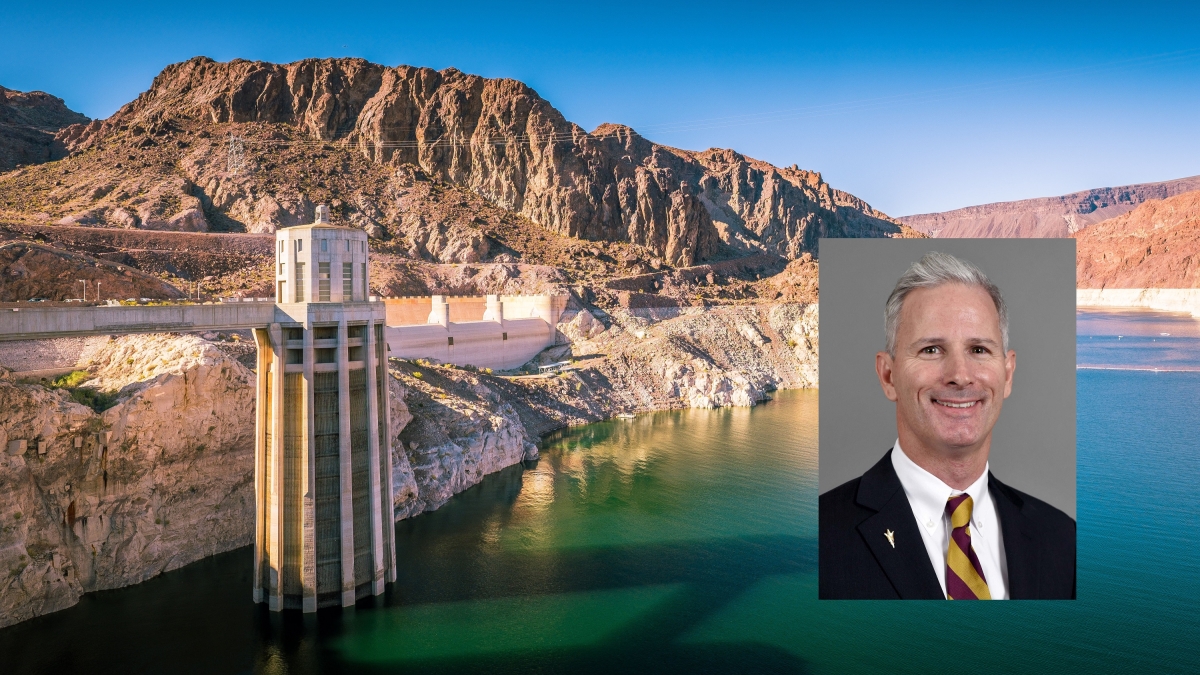The news headlines following the publication of the United Nations’ latest Intergovernmental Panel on Climate Change report painted a grim picture for the future. Media outlets, scientists and politicians are calling it a “code red for humanity.” The necessity for action is clear and urgent, and one of ASU’s leading water and sustainability experts has been tapped to help respond to our most pressing national and global challenges.
Dave White, deputy director of Arizona State University’s Global Institute of Sustainability and Innovation and professor in the School of Community Resources and Development, has been selected to represent the Southwest region as chapter lead author for the Fifth U.S. National Climate Assessment. White previously served as co-author for the complex systems chapter for the Fourth U.S. National Climate Assessment, published in 2018.
“I am honored to step into the lead author role for NCA5 for the Southwest, and I look forward to building an author team that represents the true diversity of our region,” White said. “Our primary goal is to develop actionable knowledge to address the climate crisis.”
The National Climate Assessment evaluates findings of the program and analyzes the effects and trends of global climate change. Based within the U.S. Global Change Research Program (USGCRP), the National Climate Assessment program comprises publicly nominated and hand-selected experts from 10 different regions of the country. USGCRP is steered by the Subcommittee on Global Change Research of the National Science and Technology Council’s Committee on Environment, which is overseen by the White House Office of Science and Technology Policy. The USGCRP is responsible for developing and coordinating “a comprehensive and integrated United States research program which will assist the nation and the world to understand, assess, predict and respond to human-induced and natural processes of global change.”
“Given the state of the climate crisis, there is an urgent need to anticipate challenges and develop viable options for informed action,” said Peter Schlosser, vice president and vice provost of ASU’s Julie Ann Wrigley Global Futures Laboratory, home to the Global Institute of Sustainability and Innovation. “In Arizona, climate change is already affecting our communities and causing impacts to our water resources, forest ecosystems, agriculture, energy and human health. The NCA5 will provide valuable information in a transparent, well-documented and accessible format that empowers Arizona communities to make better decisions to ensure a future in which everyone can thrive.”
More Science and technology

Study reveals genetic insight into desert survival
The deserts of the American Southwest are home to the Mojave and Sonoran desert tortoises, two seemingly similar yet genetically…

Study reveals lasting effects of common weed killer on brain health
Environmental exposure to toxins in the air, water or certain chemicals can increase the risk of ill health effects, including to…

ASU grad to use science to get an edge on crime
Editor’s note: This story is part of a series of profiles of notable fall 2024 graduates.As a child growing up in Pinetop,…
